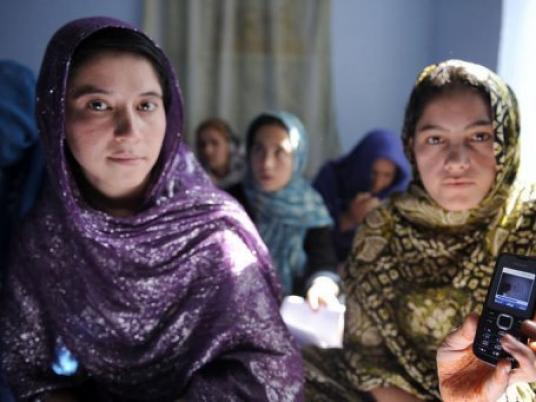
Chantelle Taylor is a former combat medic who fought in one of Britain's bloodiest battles inAfghanistan and wrote about her experience as a rare woman on the front line.
Written in a neutral tone, "Battleworn" reads like an ordinary soldier's diary and documents hardship and bravery at a small outpost in Helmand province, where two-thirds of the company was wounded in battle.
Publishers told Taylor no one would want to read a war story written by a woman and asked her to sex it up with romance.
Outraged, she self-published "Battleworn", which has been flooded with praise on Amazon and highly ranked on sales charts.
Taylor, 38, now works as a security contractor in Iraq and spoke to Reuters about the process of writing, coping with trauma and worrying about going back to civilian life.
Q: What motivated you to write the book?
A: I didn't really discuss what I'd done in Afghanistan with my family or anything, until I wrote a small piece for my mum. She really liked it. My family were quite shocked. They didn't know about anything what I'd done in Afghanistan until they read the book. There's a little bit of therapy as well in there. It's not like you can go to someone and talk about it.
Q: What was the reaction from publishers?
A: They weren't really interested in a war story written by a woman. And I was like, wow, it's actually just written by a medic. But they were pinning that on me. I was no different from anyone. You just deal with what you do.
Q: Why did you, ultimately, decide to self-publish?
A: I wasn't prepared to romanticize my experience of war. I figured if the story came out wrong, then I could at least face people knowing it was my own fuck-up and not the voice of someone else. I wanted to show that minus the bravado, war fighting is tough, even the day-to-day boring chores, they, more than anything, zap your will to live.
That's why it's so hard when we come home. No routine, nothing happening, people less zealous about their tasks than you were about yours, anti-war rhetoric everywhere.
I still feel a bond with some of those young lads, I worry for them. When you leave the army it's tough, support is non-existent unless you go down the PTSD (post-traumatic stress disorder) route; many turn to drink or drugs.
Q: After two years in Afghanistan and three in Iraq, do you worry about going back to civilian life?
A: Yeah, I do. That's like a phobia, isn't it? There's a few things I'd like to look at. I would certainly need to be doing something to help people in the same position as me … My other plan was to write for film. I'm definitely going to write again because I like it. And that's quite good therapy.
Q: What is it like being a woman in the contracting world?
A: In my military career, as a highly qualified combat medic, you're much more accepted. In the contracting world, it's quite tough being a girl. But again, it's that challenge.
Q: Do you have a family of your own?
A: I'm single. No kids and no cats. I'm not averse to it. But you've got to meet the right dude first. I'm not just going to make do.
